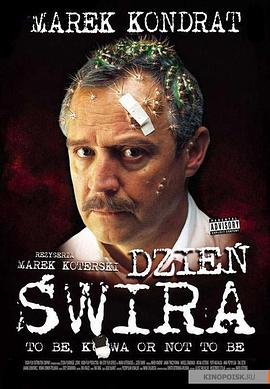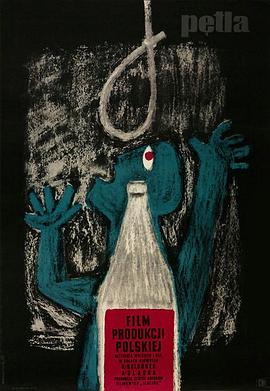『 萨拉戈萨手稿 』
“ 拿破仑战争时期,一个军官发现的一本旧书上记载着跟他祖父阿方索·范·沃登有关的故事,沃登是瓦龙部队的队长,他要寻找通往莫雷纳的捷径。在小酒馆里,他邂逅了两个伊斯兰...
| 演员 | 兹比格涅夫·齐布尔斯基 / 伊加·琴布日斯卡 / 埃尔兹别塔·奇日弗斯卡 / 格斯塔·霍洛贝克 / 斯坦尼斯瓦夫·伊加尔 / 乔安娜·延德里卡 / 博古米尔·科别拉 |
| 导演 | 沃伊切赫·哈斯 |
| 地区 | 其它 |
| 语言 | 其它 |
| 类型 | 剧情片 |
| 豆瓣 | 8.3 |
| 年份 | 1965 |
| 更新 | 2023-03-31 |
相关影视推荐
如何被爱
芭尔芭拉·克拉夫托夫娜,兹比格涅夫·齐布尔斯基,Artur Mlodnicki,韦恩泽斯洛·格林斯基,维斯拉夫·格拉斯
关于二战的电影是波兰电影学院派经常拍摄的话题。在《如何被爱》中哈斯把只是把战争作为背景,讲述两个普通人的悲剧感情故事。女主角为了爱情的无私奉献最后反而成为了她深爱的男人的负担,在某种意义上毁掉了后者的生活。这一切都是在战争的环境下发生的,正如女主角讲的,开始以为生活就是自己身边的事,后来才发现整个国家都和你有关。而男主角最后也说道,我们都是被卷入战争的普通人。
一代人
塔德乌什·罗姆尼斯基,乌尔舒拉·莫杰任斯卡,塔杜施·扬查尔,雅努什·帕卢什凯维奇,理夏德·科蒂希,罗曼·波兰斯基,卢德维克·伯努瓦,索菲娅·切尔文斯卡,兹比格涅夫·齐布尔斯基,菲耶夫斯基·塔德乌什,齐格蒙特·霍博特,采扎里·尤尔斯基,布罗尼斯瓦夫·卡索夫斯基,奥古斯特·科瓦尔奇克,耶日·克拉索夫斯基,Zenon Laurentowski,Stanislaw Milski,Juliusz Roland,汉娜·斯卡尔赞卡,Janusz Sciwiarski,卡齐米日·维赫尼亚日,Zygmunt Zintel,
在被德国占领的波兰,年轻一代长大了。Stach就是其中一个,他和朋友们起初只是自发地从事危险的抵抗活动,总的来说是无组织无目的。后来在一个慈祥的共产党干部的带领下,他接触到了地下组织。当看到那个勇敢美丽的青年领袖Dorota时,他就加入了进去并与Dorota坠入爱河。接着Stach就投入反抗压迫和屈辱的危险活动中,直到要对其他人的生命负责时他就变成熟了。不幸的是Dorota被逮捕,Stach悲痛欲绝。与此同时,地下抵抗组织招募了新成员,新的一代正在成长。
二十岁之恋
让-皮埃尔·利奥德,玛丽-弗朗丝·皮西尔,克里斯蒂娜·加约尼,杰罗尼莫·梅尼耶,埃莱奥若拉·罗西·德拉哥,芭芭拉·拉斯,兹比格涅夫·齐布尔斯基
五位著名导演,各自执导了一段关于二十岁恋情的短片。 一、特吕弗《安托万与柯莱特》:《四百下》男主角安托万人生故事的延续,安托万暗恋上比自己年纪稍大的柯莱特,柯莱特却只把他当作弟弟般地看待,安托万的早恋就此无疾而终。 二、瓦伊达《华沙》:少女爱上了在动物园里见义勇为的男子,而力邀他参与家里的青年朋友聚会。不经意间,一些场景细节勾起了男子战时的记忆伤痕…… 三、罗西里尼(无标题):可怜的下层女孩不甘心充当第三者,却被成熟老练的贵妇寥寥数语击溃了心理防线…… 四、石原慎太郎(无标题):年轻的工人暗恋上气质非凡的女子,尽管每天都会在路上碰面,他却不敢有所表达而沉耽于幻想,被压抑的强烈欲望最终引发为悲剧。 五、马克斯•奥菲尔斯(无标题):借助于往昔青春岁月的甜蜜回忆,一对夫妇逐步修复彼此之间的关系裂痕。
无休无止
格拉日娜·沙波沃夫斯卡,玛利亚·帕库尔尼斯,亚历山大·巴尔迪尼,耶日·拉齐维沃维奇,阿图尔·巴奇斯,米哈尔·巴约尔,马雷克·孔德拉特,塔德乌什·布拉德茨基,丹尼·韦伯,克日什托夫·库兹明斯基,马尔泽娜·泰巴拉,亚当·费仁希,埃尔兹别塔·基拉斯卡,杰兹·卡玛斯,汉娜·杜诺夫斯卡,扬·特萨利兹,安德烈·沙拉夫斯基
本片由几个初看起来并无关系的线索汇聚而成:一个律师本应为因组织罢工而被捕的团结工会积极分子辩护,不幸于出庭前死去,案件交由一个老律师处理。老律师热衷与人争论道德的可疑性问题。那个积极分子在各方面的重重压力下死去。同时,那个已故律师的妻子感到青春的虚空,沉溺于同其他男人的爱欲之中,但肉体的满足并不能代替精神的寂寞,最后在绝望中,她拧开煤气自杀。
银色星球
安德烈·瑟韦林,杰吉·特雷拉,格拉齐娜·迪拉格,瓦尔德马·科纳克基,伊沃娜·别尔斯卡,耶日·格拉莱克,埃尔兹别塔·卡尔科什卡,克里斯提娜·杨达,马切伊·古拉伊,亨里克·塔拉尔,莱谢克·德卢戈什,让·弗里兹,亨里克·比斯塔,维斯瓦夫·科马萨,耶日·戈林斯基
改编自叔叔杰西·祖拉斯基(Jerzy Zulawski)的科幻小说杰作《月球三部曲》,故事描述人类逃离毁灭的地球,飞船坠落在银色星球上,不久后有人开始在星球上进行造神运动,然信徒分化后一派奉此外来政权为神,另一派则视之为魔,人性贪婪的劣根性,在这星球上暴露的一览无遗…… 本片被誉为是“一部拍给另一个世界的人看的电影”。影评人一致推崇这部片是导演安德烈·祖拉斯基电影生涯中,最具史观、野心勃勃且兼具后现代主义的科幻哲思电影,也是他重回故乡波兰拍摄的归乡代表作。 这部充满争议的杰作,安德烈以非常风格化又带着原始情欲的方式,传达其所钟爱的命题:一则后现代主义式的寓言。故事的结局,地球人不但改变原本的内在,连外在也慢慢变成介于人与鸟的中间物种。这种由内而外,进而转化成另一物种的隐喻,也为这部犹如政治寓言的科幻史诗,更添加了奇幻色彩。 1977年当影片拍好八成时,新上任的波兰文化助理大臣禁止此片拍摄,并下令销毁场景、布置和服装,直到1986年波兰民主化,本片才跟着其它禁片出土。本片同时也发掘了戛纳影后克里斯提娜·杨达的潜能,拍摄这部处女作不久,她成为基耶斯洛夫斯基及瓦伊达最喜爱的女演员,也成为波兰的国民影后。
蓝白红三部曲之红
伊莲娜·雅各布,让-路易·特兰蒂尼昂,弗雷德里奎·费德,让-皮耶·罗利特,塞缪尔·勒·比汉,马里恩·斯泰伦斯,特科·切里奥,伯纳德·埃斯卡隆,让·施莱格尔,埃尔兹别塔·亚辛斯卡,保罗·弗梅伦,让-马利·道纳斯,罗兰·凯里,朱丽叶·比诺什,贝努特·里格恩特,朱莉·德尔佩,泽比纽·扎马洲斯基
女学生瓦伦丁(伊莲娜·雅各布 Irène Jacob饰)是个兼职模特,男朋友远在英国。尽管她非常珍惜这段感情,却无法阻止男友对自己的猜忌。 退休法官(简-路易斯·特林提格南特 Jean-Louis Trintignant饰)年轻时经历过铭心刻骨的情伤,爱人的背叛让他不再相信这个世界。唯一的乐趣,就是窃听邻居的电话,看人与人之间是如何充满欺骗。认识瓦伦丁之后,他冰封多年的情感开始融化。 法律系学生奥古斯特(简·皮埃尔·洛里 Jean-Pierre Lorit饰)前程锦绣,却不得不面对恋人感情的出轨。他决定前往英国一段时间,以摆脱痛苦的心情,在客轮上遇到了同往英国寻找男友的瓦伦丁。 轮船遇到强对流天气,暴风雨过后电视新闻上播放着轮船遇险的消息。一百多人罹难的同时,瓦伦丁和奥古斯丁双双幸存,他们觉得对方似曾相识……
旋风九日
Deng Xiaoping,吉米·卡特,亨利·基辛格,兹比格涅夫·布热津斯基,萨日娜,陈天璇
1979年1月28日,时任国务院副总理的邓小平作为新中国领导人第一次正式访问美国,踏出了开放国门的第一步。 此次访美无疑是邓小平一生外交行程中最重要的一次出访,也是他人生中最后一次出国。时任美国总统的卡特这样说:“邓小平1979年2月访美之后,两国友谊与合作的大门终于敞 开。”有人说:邓小平访美的那九天是当代中国人“中国梦”的启航之旅!它改变了此后中国发展的进程,影响了所有国人的生活。从此,中国进入了一个新时代。 卡特总统在日记中论述:“邓小平受到了美国人民最热烈的欢迎。” 回首当年,一切的一切都寓意深刻。然而在九天访美中又发生了怎样激动人心、跌宕起伏的故事?谱写世界史大国格局从此开启,尘封三十年珍贵镜头终见天日。
强迫男的一天
马雷克·孔德拉特,雅尼娜·特拉奇克纳,安德烈·格拉博夫斯基,Michal Koterski,Joanna Sienkiewicz,Monika Donner-Trelinska,亚历山大·贝德纳茨,兹比格涅夫·布奇科夫斯基,Dorota Chotecka,Maria Ciunelis,Krystyna Czubówna,波泽纳·里基尔,彼得·弗龙切夫斯基,安娜·戈尔诺斯塔伊,Joanna Jedrejek
强迫男的一天
爱情记事
保莉娜·姆维纳尔斯卡,彼得·瓦夫任恰克,贝尔纳黛塔·马哈拉-克热明斯卡,Jaroslaw Gruda,塔德乌什·孔维茨基,塔德乌什·罗姆尼斯基,克里斯蒂娜·扎赫瓦托维奇,乔安娜·斯泽普科斯卡,Gabriela Kownacka,Magdalena Wójcik,Bohdana Majda,莱昂纳德·彼得拉沙克,耶日·布洛克,贝娅塔·波兹尼亚克,玛利安·奥帕尼奥,Andrzej Szenajch,兹比格涅夫·布奇科夫斯基
华沙谍战
马辛·多洛辛斯基,玛雅·奥丝塔泽斯卡,帕特里克·威尔森,Dimitri Bilov,达格玛拉·多敏齐克,Oleg Maslennikov,克日什托夫·皮耶钦斯基,米罗斯洛·巴卡,泽比纽·扎马洲斯基,克日什托夫·格洛比什,帕威·马拉欣斯基,伊雷纽什·乔普,Pawel Iwanicki,兹比格涅夫·史崔杰,马里斯兹·博纳泽斯基
The most spectacular Polish spy of the Cold War era, Colonel Ryszard Kuklinski, informs Americans about the Communist Bloc's top secrets in the face of the upcoming martial law.
绳套
格斯塔·霍洛贝克,Aleksandra Slaska,特蕾莎·什米盖武夫娜
A suicidal alcoholic’s last day teems with images of anxiety and Kafkaesque paranoia. Adapted from Marek Hlasko’s novel ‘The First Step in the Clouds’, Has’ feature debut is cinematic delirium tremens, as young man Kuba Kowalski escapes his cramped flat to wander from bar to bar, unable to escape the trap of isolation. The metaphorical noose tightens as Kuba, nearly saved by the love of a good woman, dives deeper into hallucinatory intoxication.
砂制时镜下的疗养院
扬·诺维茨基,塔德乌什·孔德拉特,伊雷娜·奥斯卡,哈利娜·科瓦尔斯卡,格斯塔·霍洛贝克,Mieczyslaw Voit,博泽娜·阿达梅克,卢德维克·伯努瓦,Henryk Boukolowski,Seweryn Dalecki,Julian Jabczynski,Jerzy Przybylski,维克托·萨德茨基,Janina Sokolowska,Wojciech Standello,塔德乌斯·施密特,Szymon Szurmiej,Jan Szurmiej,Michal Szwejlich,Pawel
哈斯的彩色电影,《萨拉戈萨手稿》的姊妹篇,个人觉得他的风格更适合彩色,此片要比《萨》更为出色。这是一次内心的历险。故事背景设在二战前期,一位年轻人乘坐一辆奇怪的列车去看望住在疗养院中垂死的父亲。但这个即将拆毁的地方唤起了他许多过去的回忆。他被过去的士兵、殖民地的雇佣兵、昔日生活中的女孩,以及他的父母所包围... 获奖:波兰电影奖最佳产品设计奖 戛纳电影节评审团奖并提名金棕榈





















